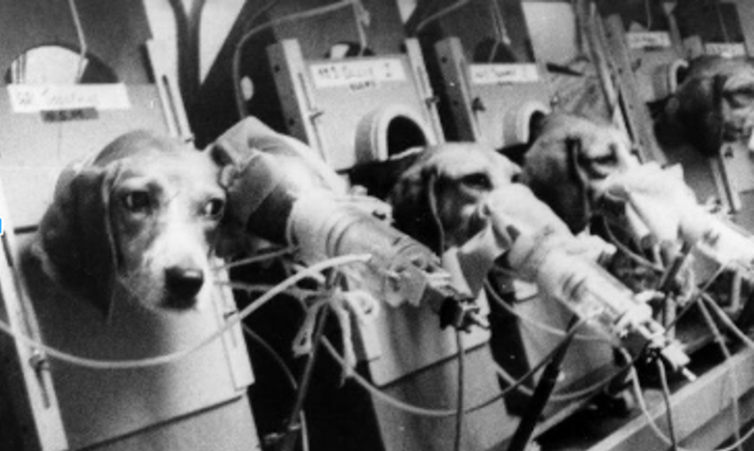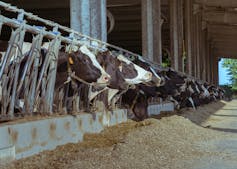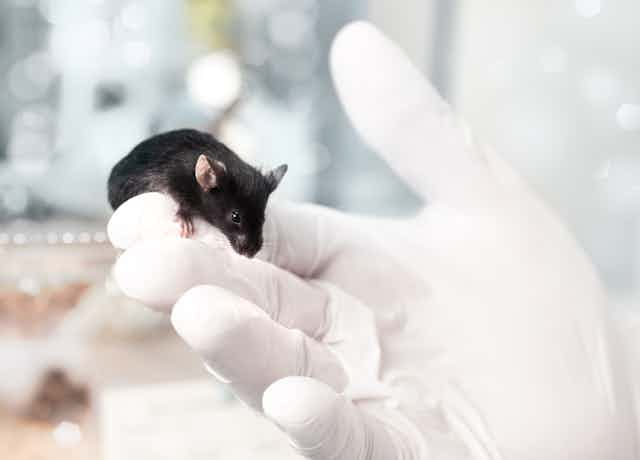The British public are renowned for their love of animals. Historically, the UK has been a hotbed of heated debate about animal cruelty and the use of animals in research. A number of well-established, UK-based organisations such as NAVS and the RSPCA have been highly effective in shining a light on animal cruelty and have garnered public support for better regulation of animal research. For example, the iconic picture of “smoking beagles” appalled readers of The Sunday People when it was published in 1975 and had a dramatic effect on the way in which animal experimentation was perceived.

Ethical standards in animal research have improved significantly since that time but the UK currently has one of the highest rates of animal experimentation in Europe. In 2015, this amounted to 2.08 million experimental procedures on a range of animals.

Most ethical codes for the use of animals in experimental research are based upon three principles: replacement, reduction and refinement – otherwise known as the “three Rs”.

The three Rs forms the basis of most existing policy around the world including the EU Directive 2010/63/EU. Among other requirements, this directive lays down minimum standards for housing and care and requires the assessment of pain, suffering, distress and lasting harm caused to the animals. Hence, in the EU at least, a laboratory mouse should be well cared for by experienced handlers, kept in conditions that ensure its health and well-being, with minimal restrictions on behavioural needs.
The three Rs are widely accepted by scientists and the public alike as being a reasonable measure for ethical acceptability. But the far reaching acceptance of the three Rs as a basis for governance of animal experimentation raises the question of why this concept is only applied to the use of animals in research. Why isn’t it also applied to the farming and slaughter of animals?
The slaughter house
Compared to the number of animals that are used for experimental purposes, the number of animals that are slaughtered in the UK each year is enormous. For example, in 2014 the total number animals slaughtered was almost one billion.

Hence, in the UK, the number of animals used in experimental procedures is only about 0.2 per cent the number of slaughtered animals.
A recent MORI poll found that as many as 26 per cent of the British public would support an outright ban on animal research and yet, according to an Ipsos MORI survey, only 3.25 per cent of the British public never eat meat. Why is there such a disparity? Do the British public care less about the animals they eat than the animals that are used in research?
If we are to be consistent in the application of our moral principles, we should apply the same consideration to all animals that are used by humans, for whatever purpose. But if we apply the same ethical principles – in other words the three Rs – to the use of animals for meat it would would mean that:
1) Wherever possible, the consumption of animals should be replaced with other foods (Replacement).
2) If there is no alternative, then only the minimum number of animals needed to meet nutritional needs should be consumed (Reduction).
3) When animals must be eaten, great care should be taken to decrease the incidence or severity of inhumane treatment and procedures (Refinement).
Clearly, if we apply the three Rs to the production of meat, the meat industry would virtually disappear.
It seems unlikely there will be consistency in application of ethical standards for animals any time soon. The double standard that exists between animals that are used for experimental purposes and those that are destined for consumption is ingrained within cultures and legislation. However, there are signs that the British public may be applying the three Rs in their lifestyle choices, whether they realise it or not.

According to the Vegan Society, the number of vegans in the UK has tripled since 2006, making veganism the fastest growing lifestyle movement. While not as extreme, 51.3% of the British public say that they try to avoid using any items derived from animals or that involve animals.
Certainly, the availability of meat substitutes in UK shops is increasing tremendously. Refinement has also shown itself to be of importance to the UK public. This is clearly evident from the shift in buying habits that occurred after the efforts of celebrity chef Jamie Oliver to raise awareness of the conditions in which battery hens are kept. About 80 per cent of the British public now buy free range or organic eggs.
There is no good reason why, if the three Rs are an accepted requirement for the use of animals in experimentation, that they should not also be a requirement for the use of animals in the meat industry. The fact that this notion is readily accepted within animal research, but not even discussed in regard to the use of animals in the production of meat, is a clear example of double standards.

